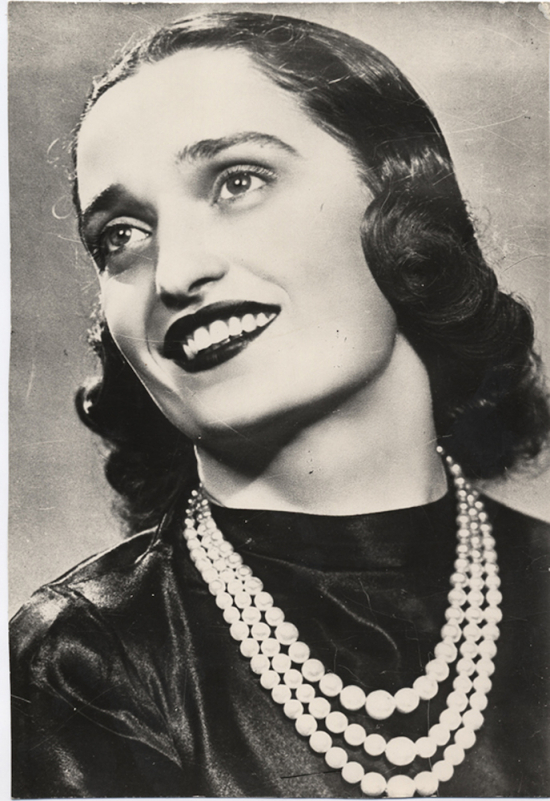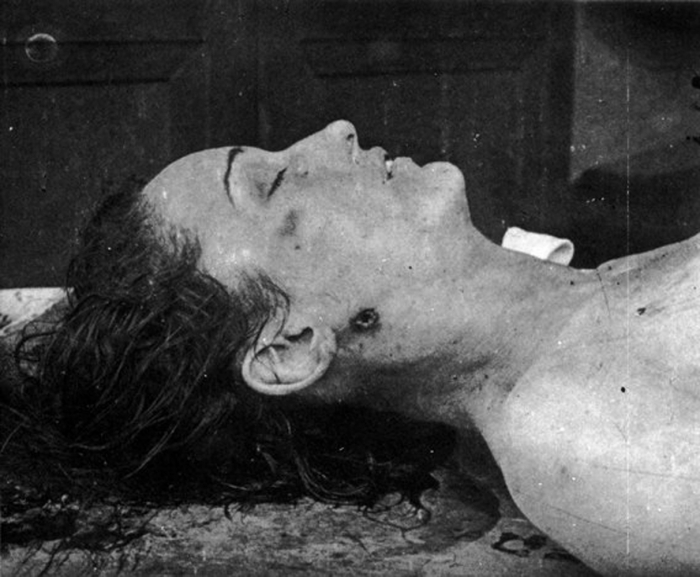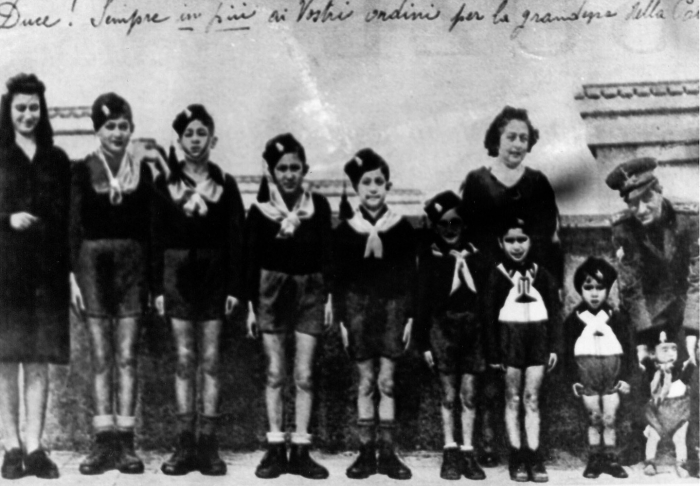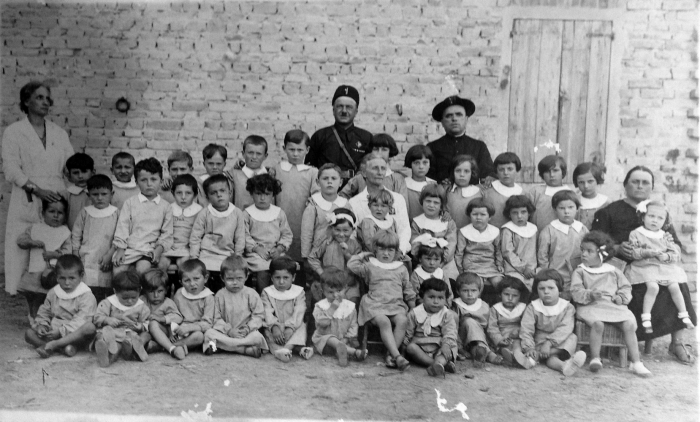With dumb silence
by Sonia Maria Luce Possentini
Mimma most pure Heroine
Lipstick and an ideal.
You are and you will be indelible like love.

Irma Bandiera
Bologna, 1915 –1944
Italian partisan
Gold Medal of Military Valor
(in memory of her heroism)
Irma Bandiera, Bologna, 1915 –1944
Italian partisan, Gold Medal of Military Valor
She was caught on the 7th of August 1944. She was back from a delivery of arms to the base in Castelmaggiore and carried encrypted documents. The executioners found her twice guilty: she refused to reveal the names of her mates and she was a woman. They attacked her in turn, each one inventing new torments and tortures, but Mimma remained silent. Their rashness was replaced by spite and frustration: many men they had forced to speak, men often stout and as strong as bulls, as stubborn as mules, and that woman… a tiny woman, seemingly frail, didn’t speak. She stared at them with her big eyes that showed up on her skinny face and her broad forehead…She stared at them with silent contempt, all the contempt of the world gathered in those eyes. So they blinded her.
She was still alive on the 14th of August when her torturers threw her on the pavement below her parents’ window. One of them said: “Is it worth while? Tell us some names, and you can go back home, get cured… Behind this window are your father and your mother”.
Mimma didn’t answer.
They finished her off with a burst of machine-gun, and went away swearing.
Authors who wrote about her:
Pino Cacucci in Ribelli, 2003.
Enzo Biagi in Quel che non si doveva dire, 2006.
Alcide Cervi, Reggio Emilia 1875–1970
“Papà Cervi”, for the Italians and the anti-fascists who used to know him, in the post-war era.
A large peasant family, the Cervi family, before and after the shooting of the 7 sons of Alcide: Gelindo, Antenore, Aldo, Ferdinando, Agostino, Ovidio, Ettore, killed on the 28-12-1943 because they joined the anti-fascist Resistance. After the death of his sons, Alcide took care of his 11 grandchildren, and brought them up to fight for their ideals, as he did with his sons.
“We laid down seven lives for our country. If it is still necessary to lay down someone’s life, the Cervi family is ready to do it, and for sure somebody will survive and start everything anew, even better than before. That’s why they won’t stop us any more. But, please, understand me, I wish they were alive, my sons,
I wish they were still here with me. Every family man wants his children to be safe. But there is only one way for them to be safe, the Italians should realize they are brothers, they shouldn’t let lies and hates divide them, Italy should finally be united, but it should be a unity of souls, a unity of patriotic hearts.”
Taken from: I miei sette figli
by Alcide Cervi, edited by Renato Nicolai - Publisher: Einaudi
In 1972, the Istituto Alcide Cervi (Alcide Cervi Institute) was established in Gattatico (Reggio Emilia) – the village where the family used to live – with the aim of handing down the memories of the Partisan Resistance and of the peasant world, according to the will of “papà Cervi”.


